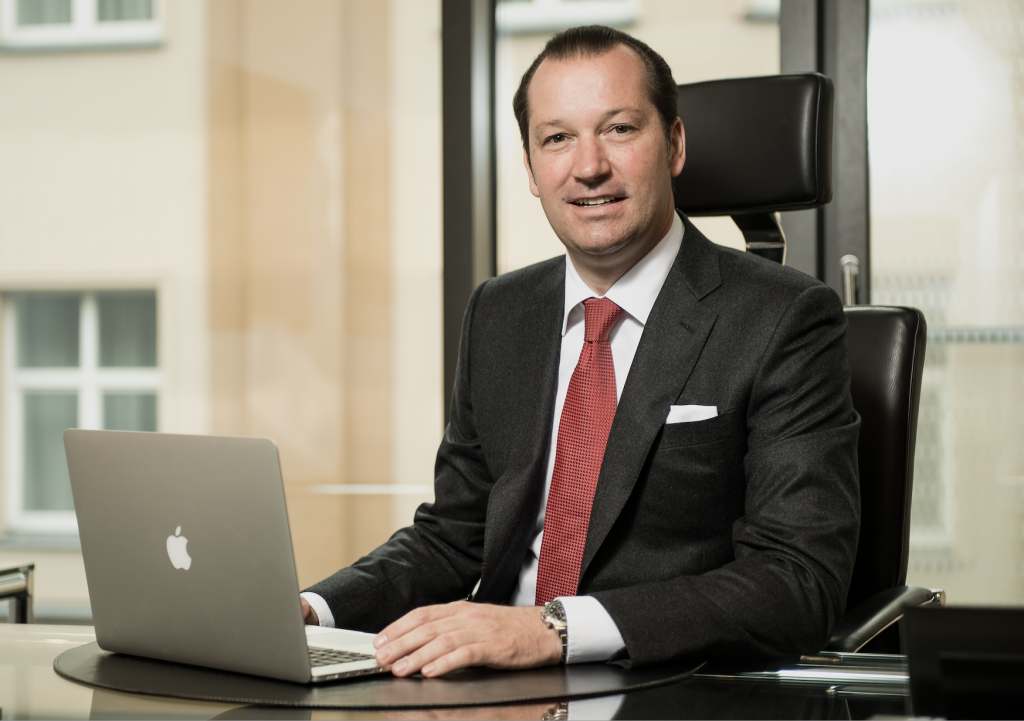For our latest podcast, we had the opportunity to sit down and speak with Dominik Moll, founder and Managing Partner at MedTech Entrepreneurs VC Fund and an early investor in Orbit Health. Before launching MTE, Dominik spent his career building and launching innovative products and companies throughout Europe. From helping to build up Kimberly-Clark’s Health Care Division in Germany to managing half of GOJO’s European division to being a member of the management board of Johnson+Johnson in Germany, he has an extensive background and expertise in operations management.
Join us as we ask Dominik how and why he entered VC, why specifically does he focus on digital health applications and what he looks for in founding teams. Listen in as we dive into what excites him about the future of digital health and more. Listen in below!
Summary
As a young startup, we rarely have insights as to what investors are looking for. Are they focused on the team dynamics? Do they focus on revenues to date? Do they want to see growth on social media? For Dominik, the answer can be summarized in one word: team. He and his partners at MTE are meticulous in evaluating founders and place a heavy emphasis on core competencies and overall fit.
In our discussion, we talk about MTE’s selection process, why they focus specifically on medical products and more! Below are highlights from our conversation with Dominik.
Dominik: Peter Lynch, the manager of the best-performing mutual fund, once said: “Invest in what you know!”. And that’s exactly what we do — we know how to provide comprehensive operational support in every aspect of the complex worldwide health care systems. We help in putting together the right teams and find the best experts.
We combine 200 man-years of experience in MedTech with the goal to help entrepreneurs improve peoples’ lives through innovative medical products.
Digital Health Applications, called “DiGA’s” are a fantastic opportunity to leverage our expertise in the medical product approval and reimbursement processes. Due to the DiGA act in April 2020, Germany is currently the only country reimbursing digital therapeutics. For example, currently on the market, patients can download apps on their smartphones to treat depression or migraine and there are other solutions available. The cost of these digital solutions is not directly billed to patients but rather reimbursed by the health insurance companies. This system makes Germany the most attractive market to commercialize such applications.
Andy: You’ve mentioned the selection of the right team. How does that work?
Dominik: Alfred Herrhausen, a German banker, once said: “Every problem in a company is ultimately a personnel problem!”. And it’s true: Several studies proved that around 70% of all unsuccessful investments fail due to management issues.
15 years ago, I managed a consultancy firm focused on Management Assessment that was active in the field of German Private Equity. We assessed hundreds of top managers, and we developed a web-based tool enabling us to carry out very efficient assessments. Today, we use a highly developed version of this tool, that has proven its liability and reliability in thousands of cases. This enables us to measure the competencies, strengths and weaknesses and ensure to have a team best suited for the task. We most probably dig deeper than any other VC fund, especially considering our fund and average ticket size.
Andy: What is your investment process? What exactly do you look for?
Dominik: We look for the convergence of Digital, Healthcare and Technology — in particular, we focus on Medical Devices and DiGAs, or even more precisely: Medical products in regulatory risk class I to III with the potential to receive a reimbursement.
As a small, specialized VC fund with significant deal flow, we just started utilizing a digital evaluation tool allowing us to filter hundreds of interesting start-ups to dozens of potential targets. When we recognize that a specific technology is a medical product for which we expect to achieve regulatory clearance and reimbursement, then we will dive deeper. For example, the decision to invest into our first three portfolio companies was made after thoroughly screening a short list of nearly 300 start-ups.
Andy: What separates MTE VC Fund from other MedTech focused VCs?
Dominik: MTE is most probably the only considerable VC fund investing in MedTech and DiGAs at such an early stage — even before CE mark — and we are supporting the start-ups operationally from prototype until exit. Academically routed start-ups appreciate our comprehensive support in corporate governance, our commercial excellence, and our reliable network.
We are raising only € 30 million for our MTE Fund at the moment and this size also makes us pretty special. You have to be quite efficient, pragmatic and result oriented to select and manage more than 20 portfolio companies with limited resources. Therefore, our network is extremely helpful. And precise selection of targets for the limited funds leads, in our opinion, to outstanding multiples.
MTE is a first-time fund. Well-known funds will constantly advertise their “track record”. Simultaneously they always use the following phrase as a warning: “Past performance is no guarantee of future results!”
We realized that we would need a different approach as we raise our first fund. As a result, we started with a smaller closing with family & friends to build up a seed portfolio. This will give us the ability to show existing performance and milestone management within an existing portfolio. As such, we believe this process to be a more effective method to build trust for our further fundraising process.
Interested in learning more? Check out MTE’s website at MTE.vc and don’t forget to follow us on our LinkedIn Page and to learn more about Orbit and our digital solutions, check out our website today.



